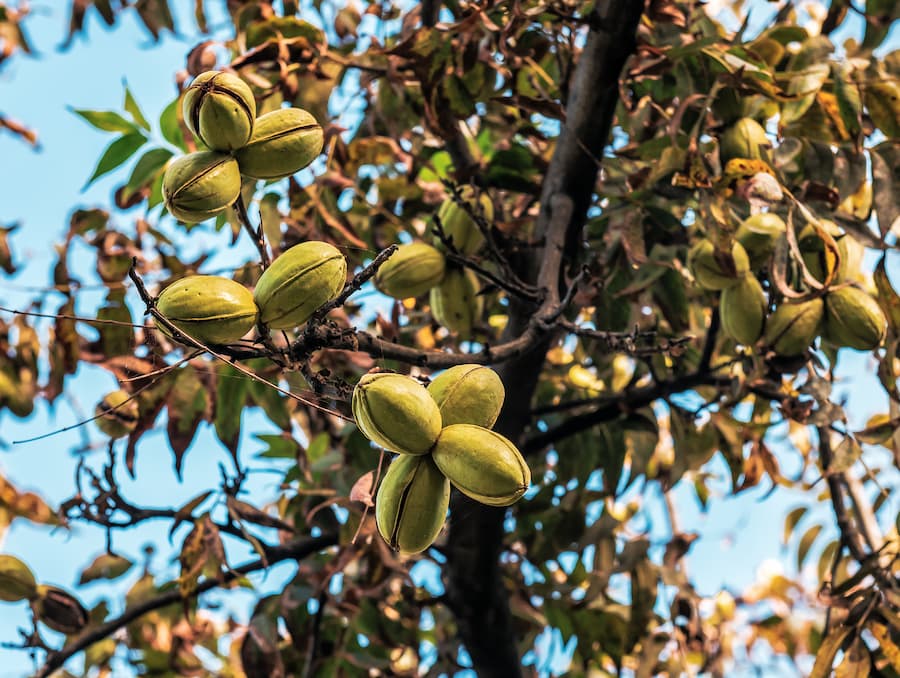This Article Includes: Texas Persimmon, Pecan Tree, Mexican Plum Tree, and Environmental Benefits
Introduction:
Native fruit trees in Texas, such as the Texas persimmon, pecan, and Mexican plum, offer a multitude of advantages for both humans and the environment. These trees not only provide delicious fruits but also attract wildlife and contribute to a healthy ecosystem. Additionally, they play a vital role in oxygen production, soil enrichment, and can be utilized for culinary delights and baking. In this article, we will explore the characteristics and benefits of these native fruit trees in Texas.
Texas Persimmon:
The Texas persimmon, a remarkable evergreen tree, thrives in full sun and well-drained soil. Its glossy leaves and dark bark make it an attractive addition to any landscape. Apart from its aesthetic appeal, the Texas persimmon produces small, sweet fruits that are a delight to the taste buds. These fruits can be enjoyed fresh or used in various culinary creations. Furthermore, the Texas persimmon’s presence in your garden can attract a variety of wildlife, including birds and butterflies.
Pecan:
The pecan tree, a majestic deciduous tree, is renowned for its delicious and nutritious nuts. Growing tall and sturdy, the pecan tree requires regular pruning to maintain its shape and promote optimal nut production. Pecans are not only a popular holiday treat but also a versatile ingredient in baking and cooking. Moreover, the pecan tree’s large canopy provides shade during hot Texas summers, making it a valuable addition to any landscape.
Mexican Plum:
The Mexican plum, a smaller native tree, offers a unique combination of beauty and utility. With its delicate white flowers, the Mexican plum adds a touch of elegance to any garden. However, its true charm lies in its edible purple plums. These plums are not only delicious but also a rich source of vitamins and antioxidants. The Mexican plum tree can tolerate some shade, making it suitable for gardens with partial sunlight. Additionally, the tree’s flowers and fruits attract pollinators and wildlife, contributing to a thriving ecosystem.
Environmental Benefits:
Native fruit trees in Texas play a crucial role in maintaining a healthy environment. They are adept at producing oxygen, which is vital for human and animal life. Furthermore, these trees enrich the soil by adding organic matter and improving its structure. Their deep root systems help prevent soil erosion and retain water, making them valuable assets in water conservation efforts. By planting and nurturing native fruit trees, Texans can contribute to a sustainable and resilient ecosystem.
Conclusion:
Native fruit trees in Texas, such as the Texas persimmon, pecan, and Mexican plum, offer a plethora of benefits. From their delectable fruits to their ability to attract wildlife and promote a healthy ecosystem, these trees are a valuable addition to any landscape. Moreover, their environmental contributions, such as oxygen production and soil enrichment, make them essential for a sustainable future. So, why not embrace the bounty of native fruit trees and enjoy the many advantages they bring to our lives and the environment?

